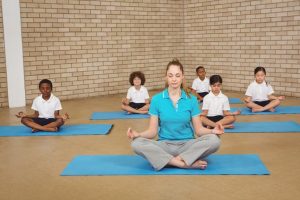Monsoon Wellness: Health Tips for the Rainy Season

The arrival of the monsoon is always a time of celebration. The relief of cool rain showers and gusting winds after the blistering heat of summer are incredible. While the change of seasons is a delightful time indeed, it is also important to remember that the onset of the Monsoons brings with it the possibility of illness and disease. Higher levels of moisture and humidity in the air allows bacteria and viruses to thrive more easily. It is therefore very important to take precautions to minimise potential health risks during this time. In this blog, we share some key health tips for the rainy season that will keep your family safe while enjoying the thrills of the monsoons.
Some Practical Tips for Staying Healthy During Monsoon
- Use nets and repellents: The rainy season is when mosquitoes thrive. They can spread a number of illnesses like dengue and chikungunya. Apply mosquito repellents and use nets to prevent getting bitten, which brings the risk of infections.
- Cleanliness: Keep your home and surroundings clean to prevent mosquitoes and other insects from breeding. Stagnant water is a breeding ground for mosquitoes, raising the risk of mosquito-borne diseases. To reduce this risk, it is recommended that accumulated water from containers such as buckets, flower pots and other receptacles are regularly empted.
- Maintain personal hygiene: Wash your hands often with soap and water. Do this especially before eating or touching your face. Keep your nails well-groomed and clean to avoid any kind of build-up of dirt and bacteria.
- Wear protective clothing: One of the best ways to prevent skin issues in the monsoon season is to wear clothing that fully covers your body. For example, long-sleeved tops and full-length pants provide an extra layer of protection against infections and diseases.
- Avoid getting wet in the rain: The cooler temperatures and high moisture levels put you at risk of catching a cold or a viral infection. Keeping an umbrella or raincoat handy is always a good idea while stepping out during the monsoons.
- Exercise regularly: Keeping healthy and fit during the monsoons will enhance your immunity. While the rain may dampen your outdoor fitness routine, there are many fitness regimes that can be done at home like yoga or indoor workouts.
- Consume a balanced diet: Nutritious food will help boost your immunity. Include foods that are rich in vitamins C and D in your daily diet. Citrus fruits, fatty fish and green vegetables are a great source of these vitamins. You may also include seasonal fruits like mangoes and pomegranates into your diet.
- Stay Hydrated: Drinking sufficient water is essential for your immune system to function properly. Set a reminder on your phone to ensure you drink enough water during the day.
By following these health precautions in the rainy season, one can substantially reduce the risk of disease and infections
Things to Avoid During the Monsoon Season
- Stay away from street food: Street food is extremely tempting – especially when the weather is pleasant. However, indulging in this guilty pleasure could be quite dangerous during the rainy season. The moisture in the air creates ideal conditions for bacteria and other pathogens, raising the risk of food contamination. Opting for home-made meals can help reduce gastrointestinal infections and food poisoning.
- Avoid accumulation of water: During the rainy season, stagnant water becomes breeding grounds for mosquitoes, causing malaria, dengue fever and chikungunya. Always put lids on containers used for storing water. This is among the most useful monsoon tips for health.
- Avoid consuming unwashed vegetables: Increased humidity in the air causes bacteria and fungi to multiply rapidly on food and vegetables. Remember to wash your vegetables thoroughly to remove contaminants.
- Avoid wearing wet clothes: Damp garments can attract germs and other bacteria, which can cause respiratory diseases and fungal infections. Always change out of wet clothes, socks or footwear as soon as possible.
- Avoid crowded places: Crowded places become super-spreader spaces, especially for air-borne diseases. If avoiding crowds and small spaces is not possible, take adequate protection by wearing masks and using hand
These health precautions in the rainy season are simple yet effective practices that significantly reduce the chances of catching and spreading illnesses. By being proactive and taking preventive measures, you can create a healthier living environment – not just for yourself, but also your community.
At Billabong International High School, we focus on holistic learning through an innovative approach that teaches children about their own wellbeing, as well as the community around them. To learn more about our curriculum, contact us today.








